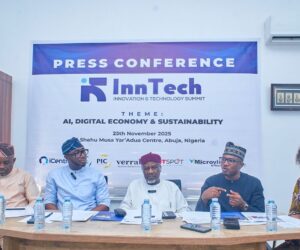The Islamic Development Bank Institute (IsDBI) and the IsDB Global Practice & Partnership (GPP) Directorate, through its Cooperation and Capacity Development Department (CCD), have launched a five-volume series of Islamic Microfinance Toolkits, aimed at strengthening inclusive financial ecosystems across IsDB Member Countries.
The toolkits offer a comprehensive and practical roadmap for establishing, operating, monitoring, and regulating Islamic microfinance institutions.
Developed through extensive research, field experience, inter-departmental collaboration, and stakeholder consultations, the revamped toolkits aim to assist policymakers, regulators, and practitioners in unlocking the full potential of Islamic microfinance to combat poverty, foster entrepreneurship, and promote sustainable development.
SPONSOR AD
Director General of IsDBI, Dr. Sami Al-Suwailem, said: “Islamic microfinance, grounded in principles of fairness and risk-sharing, is a vital tool to enable the poor to participate in economic activity with dignity and purpose. These toolkits provide concrete steps for stakeholders to build inclusive financial systems that reflect both the spirit and substance of Islamic finance.”
Dr. Issa Faye, Director General of GPP, added: “This joint initiative reflects our collective commitment to support member countries in strengthening their financial inclusion strategies. By providing technical guidance and practical models, we aim to empower institutions to design scalable, context-sensitive Islamic microfinance solutions, I would like to sincerely commend both the current team behind these toolkits and the previous colleagues from various business units who contributed to their development.”
In a statement, the An overview of the five books in the series is as follows: Book 1 comprises Concepts, Business Models & Products: Introduces Islamic microfinance principles, business models, and product structures while book 2 deals with establishing a Shari’ah-Compliant Entity: Offers guidance on strategic planning, governance, financial feasibility, and Shari’ah compliance.
Book 3 is Integrating Islamic Finance into Agricultural Value Chains: Focuses on financing agricultural value chains using Islamic financial instruments and case studies.
Also, Book 4 deals with Monitoring and Evaluation Performance and Outcomes providing frameworks and indicators for financial, social, and Shari’ah performance.








